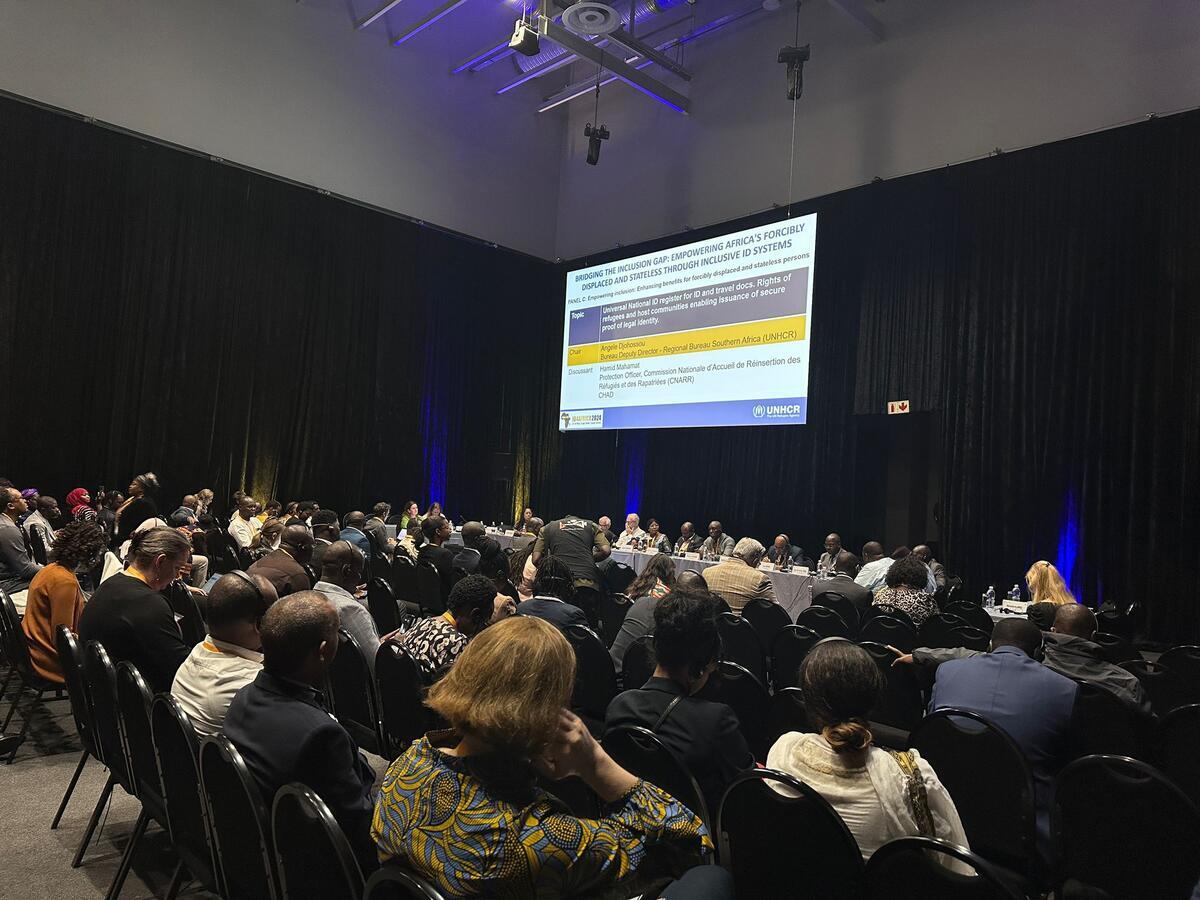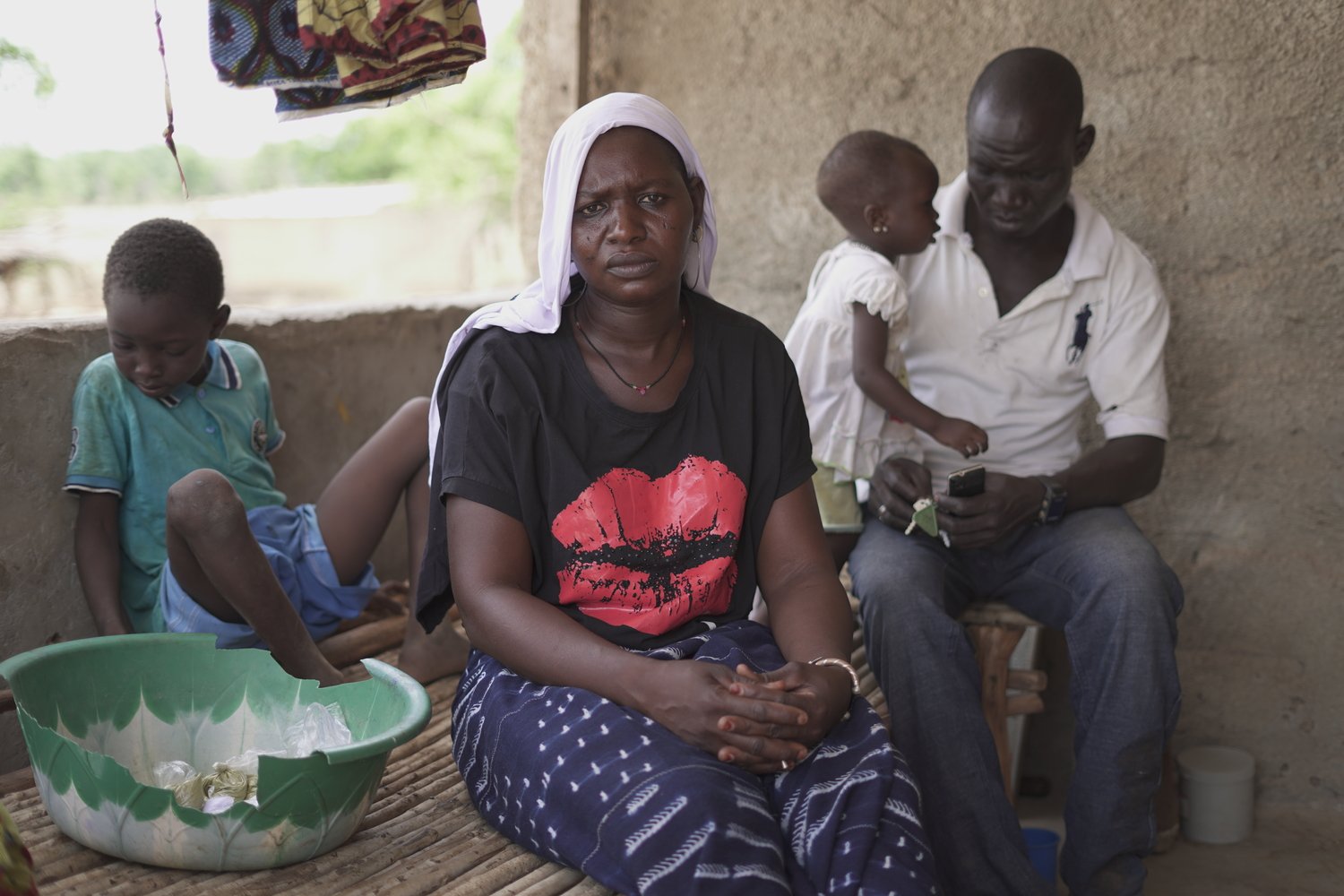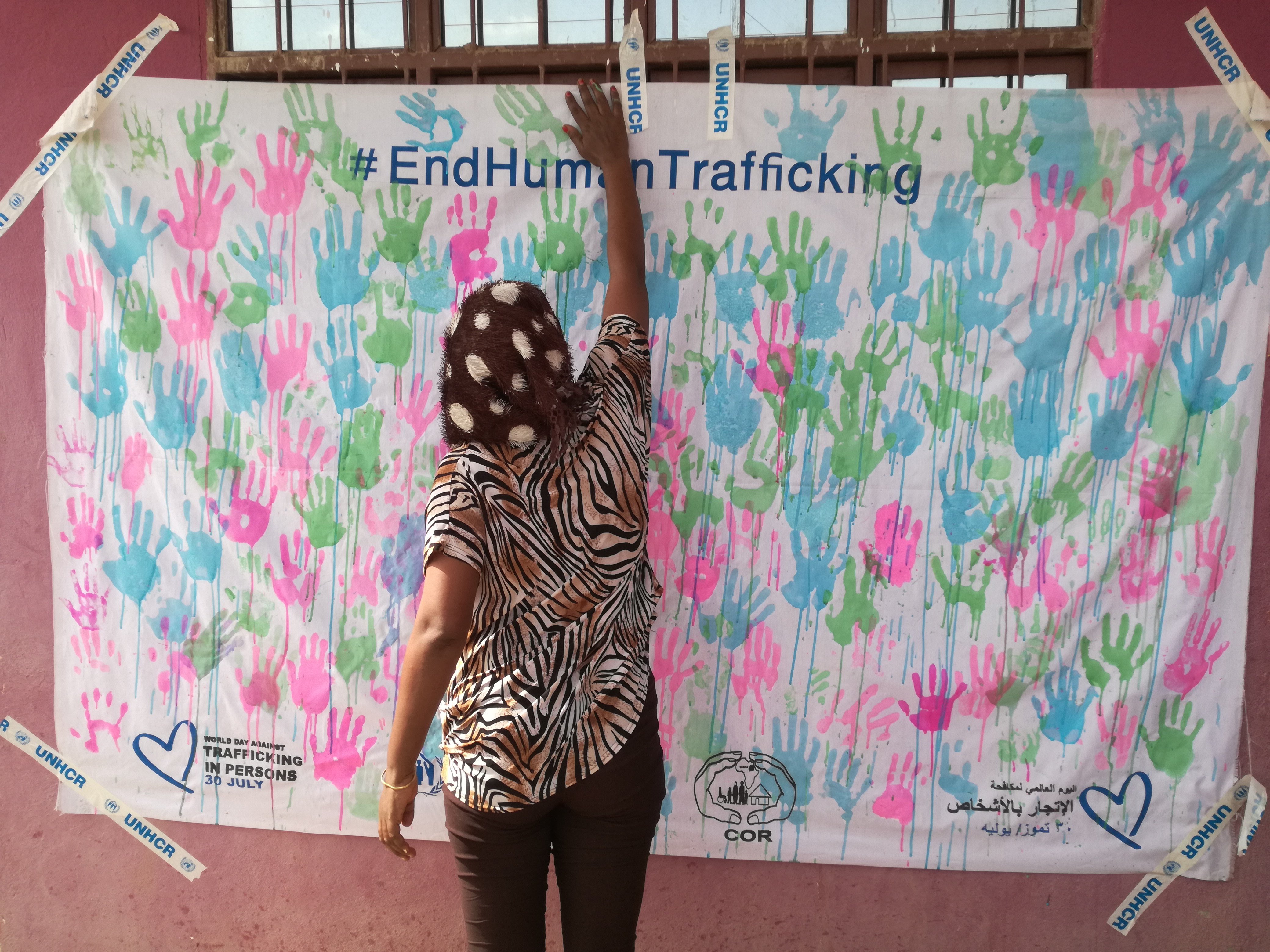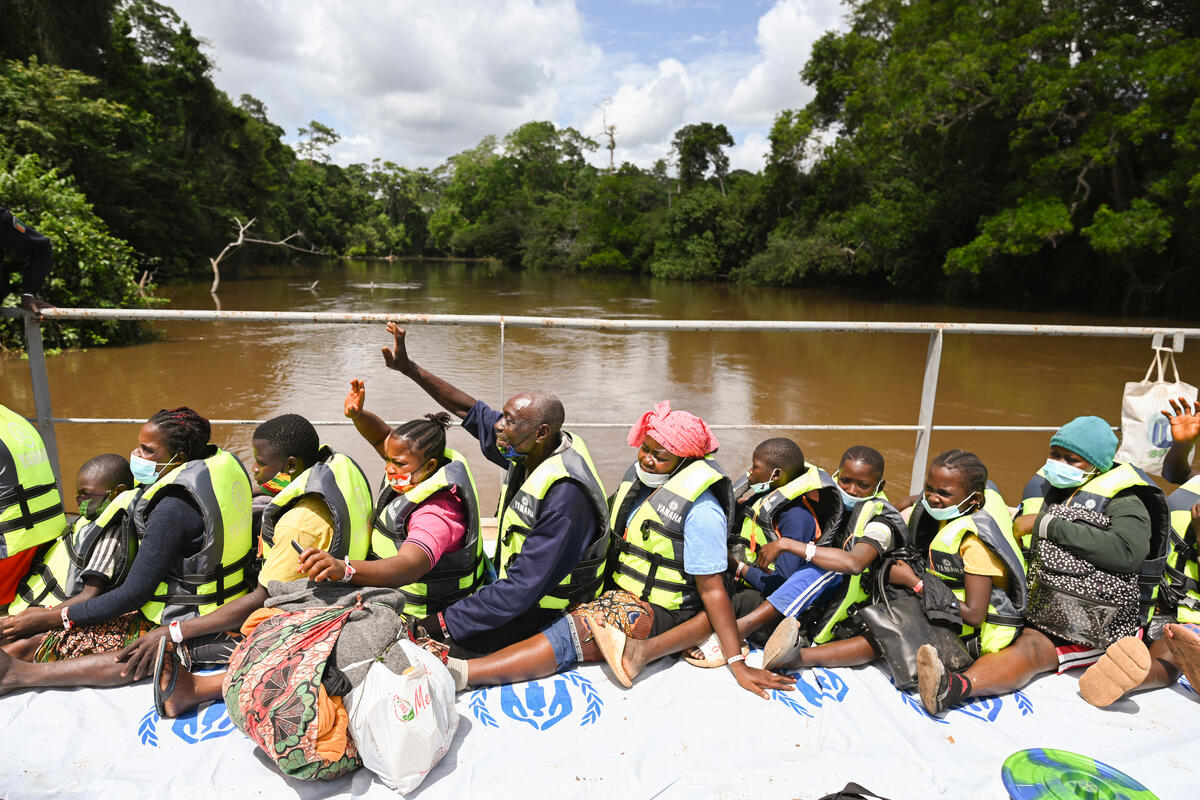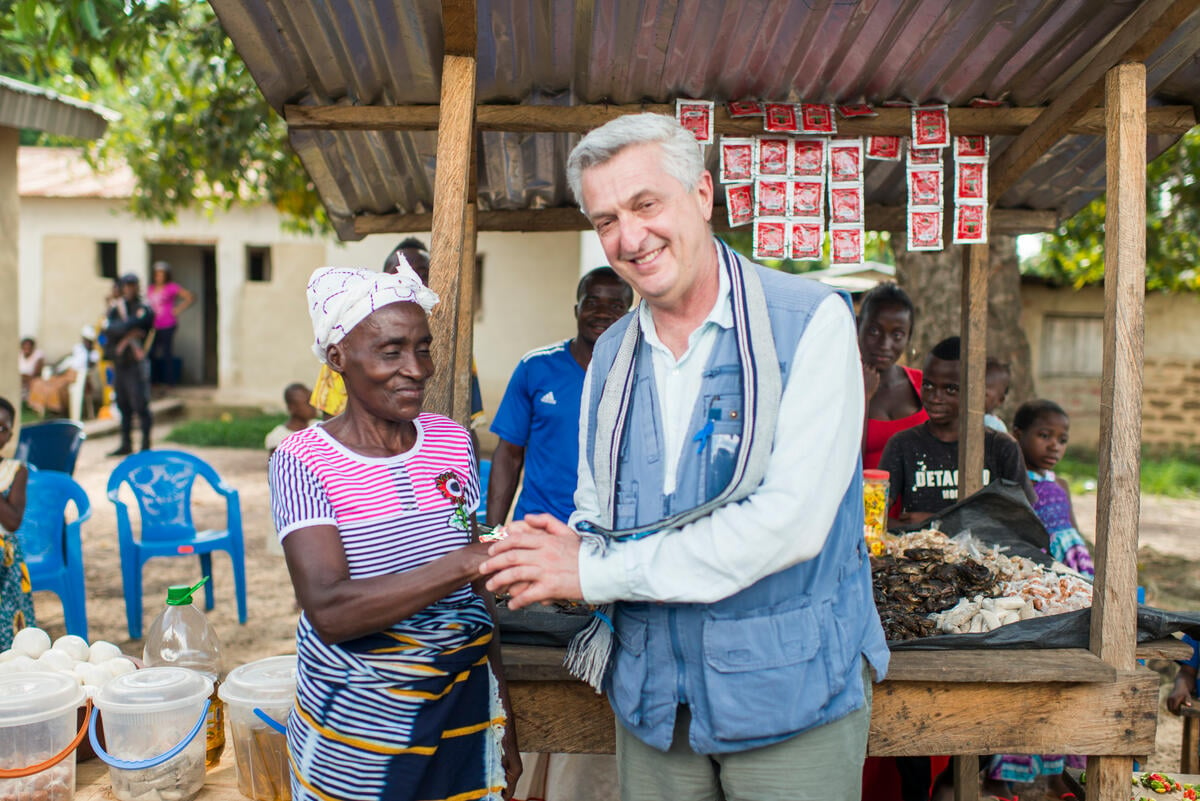Deputy High Commissioner to West Africa
Deputy High Commissioner to West Africa
Deputy High Commissioner Mary Ann Wyrsch leaves tomorrow (Wednesday) on an 11-day mission to West Africa, where she will get a first-hand look at several ongoing operations.
During her four-nation mission, Ms. Wyrsch will also discuss administrative, financial and management issues with UNHCR staff involved in some of the refugee agency's most challenging operations. These include current refugee movements in Liberia and Côte d'Ivoire, as well as the Sierra Leone repatriation. She will travel to border areas and refugee or returnee camps to meet recently arrived refugees from Côte d'Ivoire and Liberia. She will also meet Sierra Leonean refugees in Liberia, as well as recent returnees in Sierra Leone.
In each country, Ms. Wyrsch is scheduled to meet senior government officials, diplomats and representatives of UN agencies and various NGOs.
Her first stop is Guinea, where she will spend four days. On Sunday, Jan. 19, she is scheduled to fly to Freetown, Sierra Leone, for a three-day visit. She then travels to Monrovia, Liberia, on Wednesday, Jan. 22, and on to Abidjan, Côte d'Ivoire, on Thursday for a one-day stay. She returns to Conakry on Friday, Jan. 24 and is scheduled to meet with UNHCR representatives from the region on Saturday before leaving that evening for Geneva.
In the region, meanwhile, UNHCR welcomes the ceasefire signed in Lomé yesterday between the two western rebel movements and loyalist forces. We hope this ceasefire will contribute to improving general security conditions in the west, in particular for Liberian refugees trapped in the conflict, and facilitate humanitarian operations in the region. We also support the Paris process and call on all parties who will take part in the talks as of tomorrow to find a peaceful resolution. They should also make commitments for the safety of humanitarian staff and operations on the territory of Côte d'Ivoire and for the free movement of civilians, including refugees.
We remain, however, extremely concerned about Liberian refugees caught in the conflict in western Côte d'Ivoire. Many of them have even reportedly been prevented from fleeing back to Liberia and are falsely accused by the local population of being involved with the rebels.
After the rebels took control of the town of Grabo, near Tabou, in the south-west of the country last week, more than 6,000 of the estimated 20,000 refugees remaining in the Tabou area fled back to Liberia. Another 1,000 sought safety at the UNHCR/CARITAS compound in Tabou. Except for about 250, who have been sheltered in another compound, they remain in the UNHCR/CARITAS compound and are extremely frightened. They have been prevented from moving out of our compound by the local population, even to return to Liberia. On Sunday night, four of the Liberian refugees were beaten inside the compound.
A UNHCR team visited Tabou on Saturday. After talking to the refugees, it was agreed that we would facilitate their return to Liberia as an emergency measure of last resort. UNHCR is still holding talks with local officials, traditional leaders and others in the local population to allow this transfer to start as early as tomorrow (Wednesday). We are also organising the logistics as a matter of emergency, including the mobilisation of local minibuses to transport 15-20 refugees at a time to the border. We would then use pirogues to cross the Cavaly River into Liberia. We previously had a ferry to transport returnees across the river, but it was blown up by security forces in November.
UNHCR is appealing to the local population and young loyalists manning numerous checkpoints in the region to stop harassing refugees and let those who want to leave Côte d'Ivoire depart. The checkpoints have made any movement nearly impossible for the refugees.
Since fighting started in the west of the country on November 19, refugees have increasingly been accused of taking part in rebel activity. The war has provoked a change of attitude towards refugees in Côte d'Ivoire, which had always been known for its hospitality to refugees, who were allowed to live among the local population. Recent requests made to the government for a new site to transfer vulnerable Liberian refugees from the conflict zones have been unsuccessful.
Before the fighting started in Côte d'Ivoire, the country hosted about 70,000 Liberian refugees, mostly settled along the western border with Liberia. Some 38,000 Liberians, not all necessarily registered refugees, have returned to Liberia since mid-November. During the same period, another 21,000 Ivorian refugees have also crossed the border to seek refuge in Liberia, together with some 3,000 nationals from other mainly West African countries. A total of 62,000 new arrivals have been recorded entering Liberia's eastern counties. Many are hosted in four transit centres, but most Ivorians are staying in villages along the border. UNHCR is discussing with the authorities the possibility of establishing camps for the Ivorians. We are continuing to transport Liberians back home when this is possible, mainly to Bong and Nimba counties. Other Liberians who cannot return home because of Liberia's own internal conflict will be assisted in a camp for internally displaced persons in Totota, south of Gbarnga, in Bong County.



